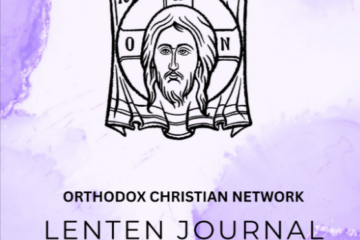George Mantzaridis, Professor Emeritus, Theological School, Aristotle University of Thessaloniki
The prime feature of God is His simplicity. If God is not simple, but composed of different parts, then these parts must have existed before Him. Such a God would not be the Cause and Creator of all things, would not be a real God, the fons et origo of all things. Given that He is the origin of all things, He cannot be complex but must be simple. Moreover He is not merely simple but the ‘simplicity of the simplified and the unity of the unified’[1]. Thus, without ever departing from His unconfused simplicity, He is completely present ‘unconfused and undivided in all things and in each of the creatures’[2]. Saint Gregory Palamas says that God is not some huge body Who cannot fit into a small space, but is incorporeal. For this reason, He can be ‘everywhere present and beyond everything and in One’. No matter how small a thing we call to mind, He can fit into it[3].
People are not simple, but complex and this is not due primarily to the fact that we consist of body and soul and that we have many organs and features, but rather that we have many needs, we are ‘needy’. Our existence and its maintenance require many things that are outside us. This is why we need so many senses, so that we can come into contact with these things, know what they are, make them our own and benefit from them.
But God is not simple and uncomplicated as an indifferent substance would be ,or as ‘pure energy’, as Aristotle and, to some extent, Scholastic theology conceived Him. This philosophical notion of simplicity is alien to the Biblical and Patristic tradition. God is simple because He is ‘unneedy’, because He already has everything and has no need of any completion or acquisition. And so we see in the New Testament, too, that the simple is complete in itself, and generous, as opposed to the evil or double-minded[4].
God is simple, despite being three Hypostases. He is simple, even though He is discerned as essence and energy. He is simple even though He is at once accessible and inaccessible. In fact, it could be said that God is simple because He is three Hypostases and because He is discerned as essence and energy: ‘For God is One in essence and energy: the Father, the Son and the Holy Spirit’[5]. He is also simple because He is accessible and inaccessible: God multiplies though remaining One, and is divided while indivisible and shares in all things though remaining whole and having His unity inseparable by supra-essential power’[6].
In the final analysis, God is simple because He is all-powerful, impassible and without needs. The more powerful things are, observes Saint Gregory Palamas, the simpler they are; and the All-powerful is the simplest[7]. He has no need of increase or decrease or acquisition of anything He lacks. God, he says, ‘being alone, is most wonderfully simple, in no way requiring addition, diminution or acquisition. Being all-powerful, He is thus the most simple of all things’[8]. And Saint Symeon the New Theologian writes. ‘God the cause of all, is One. This One is light and life, spirit and reason, mouth and word…’ People, too, have one sense in one soul and mind and reason, even if this is divided into five to meet our physical needs[9]. All these senses come together and end in the nous, the faculty of immediate perception, which governs them: ‘the nous sees and the nous hears’.
God is light. ‘The Father is light, the Son is light and the Holy Spirit is light; one light, simple, not complex, timeless, co-eternal, equal in honour and of the same mind’, Saint Symeon observes[10]. And Saint Gregory Palamas writes that this divine light is not merely undivided but is also a unifying and deifying power. Depending always on the receptivity of those who share in it, it unifies and elevates them to the unity and deifying simplicity of the Father[11]. Although the essence of God remains unshared and simple, Palamas observes, His energies are shared with His creations. And though those who do thus share in them are created and have a certain origin, the divine energies in which they are participating are multi-faceted, uncreated and eternal, ‘permanently linked to the all-powerful and self-sufficient God and Lord of all from all the ages’[12]. In any case, we know from nature that simple white light contains all the colours.
Although simplicity is associated with all-powerfulness and completeness, synthesis comes from weakness and want. When something cannot exist and maintain itself by its own powers, it inevitably has recourse to synthesis. God exists as He Who is on His own and arranges all things, without possessing or sharing. Created things do not exist as beings in themselves but as sharers and possessors. In God, having belongs to being. In His creatures, being requires having.
[1] Dionysios the Areopagite, On the Divine Names, 1,3,PG 3,589C.
[2] Maximos the Confessor, On Queries,PG 91, 1257B.
[3] To Hionas 12, ed. P. Christou, Γρηγορίου Παλαμά, Συγγράμματα, vol. 4, Thessaloniki 1988, p. 159.
[4] See Matth. 6, 22-3; James 1, 5-6.
[5] Dialogue between an Orthodox and a Varlaamite 37, ed. P. Christou, Γρηγορίου Παλαμά, Συγγράμματα, vol. 2, Thessaloniki 1966, p.200. Cf. also para.50, p. 212.
[6] On divine and deifying sharing 23, ibid, p.157.
[7] Dialogue between an Orthodox and a Varlaamite 53, ibid, p. 215.
[8] Ibid, 54, p. 216.
[9] Ethical Discourse 3, 7.
[10] Theological 3, 141-3, SC 122.
[11] On divine and deifying sharing 6, op. cit., pp. 141-2.
[12] On the divine energies 40-1, ibid, pp 125-6.
Source: pemptousia.com




0 Comments